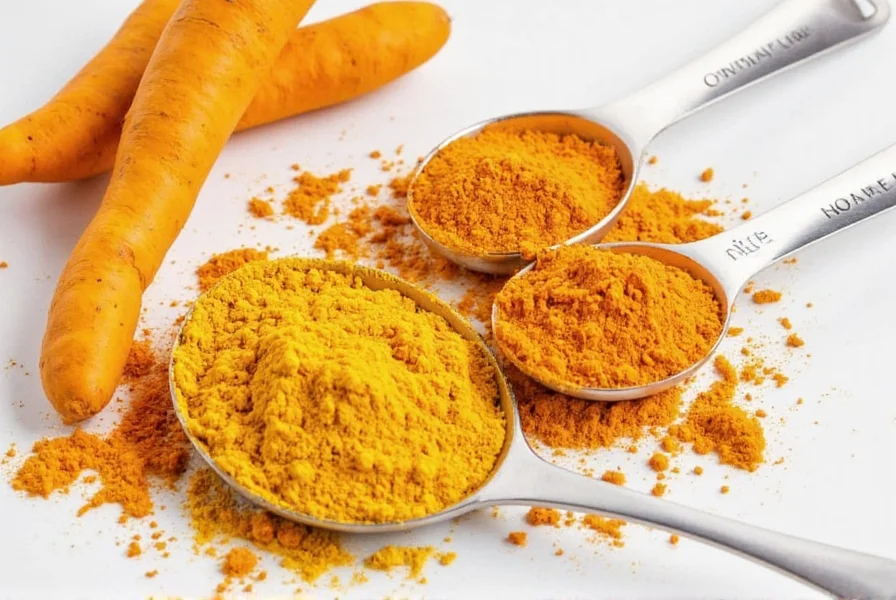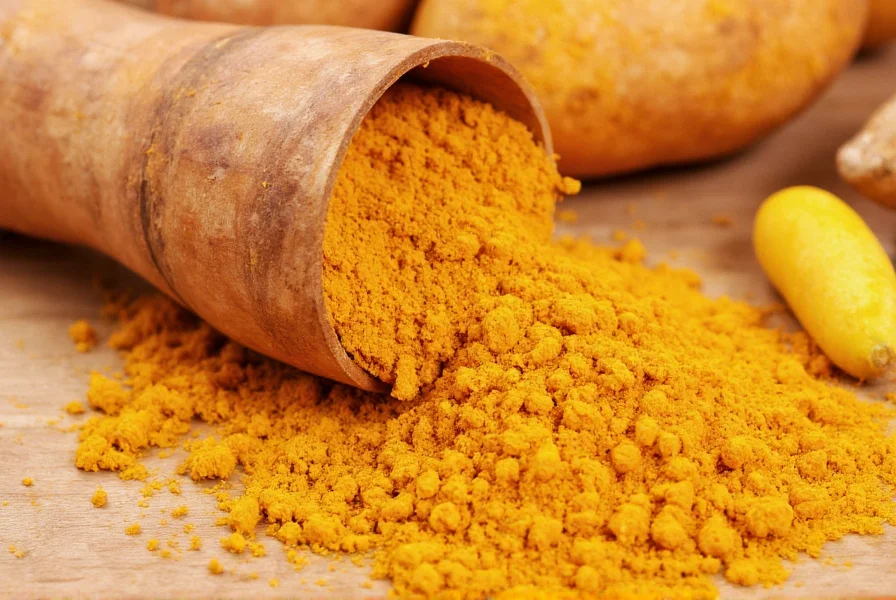For general health maintenance, most adults safely consume 500-2,000 mg of curcumin (the active compound in turmeric) daily. Standardized turmeric supplements typically contain 95% curcuminoids, with effective doses ranging from 400-600 mg taken 2-3 times daily. Whole turmeric powder provides about 3% curcumin by weight, so 1-3 grams daily is common. Always combine with black pepper (piperine) to increase absorption by up to 2,000%. Consult your healthcare provider before starting turmeric supplementation, especially if taking blood thinners or managing gallbladder issues.
Understanding proper turmeric dosage guidelines is essential for safely harnessing this ancient spice's health benefits. Turmeric, particularly its active compound curcumin, has gained significant attention for its anti-inflammatory and antioxidant properties. However, determining the right amount depends on multiple factors including your health goals, the form you're using, and individual health considerations.
The Science Behind Turmeric and Curcumin
Turmeric (Curcuma longa) contains curcuminoids, with curcumin being the most studied compound. While turmeric root contains only about 2-8% curcumin by weight, most research on therapeutic benefits uses standardized extracts containing 95% curcuminoids. This distinction is crucial when determining appropriate turmeric supplement dosage versus culinary use.
One significant challenge with turmeric is its poor bioavailability. Curcumin isn't easily absorbed by the body and is quickly metabolized and eliminated. This explains why traditional preparations often combine turmeric with black pepper (containing piperine) or fats to enhance absorption—a critical consideration for effective turmeric dosage for inflammation.

Standard Turmeric Dosage Recommendations
The appropriate amount of turmeric varies significantly based on whether you're using it as a culinary spice or a therapeutic supplement. Understanding these differences is essential for safe turmeric consumption guidelines.
| Form of Turmeric | Daily Dosage Range | Curcumin Content | Recommended Use |
|---|---|---|---|
| Whole Turmeric Root | 1.5-3 grams | 30-90 mg | Culinary use |
| Turmeric Powder | 1-3 grams (½-1½ tsp) | 30-90 mg | Culinary use |
| Standardized Extract (95% curcuminoids) | 400-600 mg, 2-3 times daily | 380-570 mg per dose | Therapeutic use |
| Liposomal or Enhanced Bioavailability Formulas | 250-500 mg, 1-2 times daily | Varies by formulation | Therapeutic use |
Dosage Guidelines for Specific Health Concerns
Research suggests different optimal turmeric dosage for arthritis compared to other conditions. Evidence-based recommendations vary depending on your health goals:
For General Wellness and Prevention
A daily intake of 500-1,000 mg of standardized curcumin extract (providing 475-950 mg curcuminoids) is appropriate for general health maintenance. This represents the typical daily turmeric dosage for adults seeking antioxidant and anti-inflammatory benefits without targeting specific health conditions.
For Inflammatory Conditions
Studies on turmeric dosage for joint pain and arthritis typically use 500 mg of standardized curcumin extract taken twice daily. Research published in the Journal of Medicinal Food showed significant improvement in osteoarthritis symptoms at this dosage when combined with 5 mg of piperine per dose.
For Cognitive Health
Emerging research on turmeric dosage for brain health suggests 80-500 mg of highly bioavailable curcumin daily may support cognitive function. A UCLA study found 90 mg of a specialized curcumin formulation taken twice daily showed cognitive benefits over 18 months.
Factors Influencing Your Ideal Turmeric Dosage
Several variables affect the appropriate personalized turmeric dosage recommendations for any individual:
Bioavailability Considerations
The form of turmeric dramatically impacts effective dosage. Standard curcumin has poor absorption, while formulations with piperine (black pepper extract), phospholipids, or nanoparticles can increase bioavailability by 7-2,000 times. This means you may need significantly less of an enhanced formula to achieve the same benefits as a higher dose of standard curcumin.
Individual Health Factors
Your ideal turmeric dosage for specific health conditions depends on factors including:
- Body weight and composition
- Current health status
- Medications you're taking
- Age and metabolic rate
- Genetic factors affecting metabolism
Duration of Use
Short-term therapeutic use often employs higher doses than long-term maintenance. For example, some studies on turmeric dosage for acute inflammation use 1,500-2,000 mg daily for 4-8 weeks, then recommend reducing to 500-1,000 mg for ongoing use.
Safety Guidelines and Maximum Dosage
While turmeric is generally safe, understanding maximum safe turmeric dosage is crucial. The European Food Safety Authority established an acceptable daily intake of 0.1 mg of curcumin per pound of body weight (0.2 mg per kg). For a 150-pound person, this equals approximately 225 mg of curcumin daily.
However, clinical studies have safely used much higher doses (up to 8,000 mg of curcumin daily) for short periods under medical supervision. Most experts recommend not exceeding 2,000 mg of standardized curcumin extract daily without professional guidance.
Potential Side Effects at Higher Doses
Exceeding appropriate turmeric dosage limits and side effects may include:
- Digestive discomfort (nausea, diarrhea) at doses above 1,000-2,000 mg
- Increased bleeding risk when combined with blood thinners
- Lowered blood sugar levels, problematic for diabetics
- Gallbladder contractions that may worsen gallstones
Practical Tips for Taking Turmeric Effectively
Maximizing the benefits of your turmeric dosage schedule and timing requires attention to how you consume it:
- Always combine with black pepper: Just 20 mg of piperine (found in ¼ teaspoon of black pepper) can increase curcumin absorption by up to 2,000%.
- Take with healthy fats: Curcumin is fat-soluble, so consuming it with avocado, olive oil, or coconut milk enhances absorption.
- Consider timing: For inflammation management, splitting your daily dose (morning and evening) maintains more consistent blood levels.
- Avoid taking on empty stomach: High doses may cause gastric irritation when taken without food.
When to Consult a Healthcare Professional
Certain situations require professional guidance for medical supervision of turmeric dosage:
- If you take blood thinners (warfarin, aspirin, clopidogrel)
- Before surgery (stop taking 2 weeks prior)
- If you have gallbladder disease or kidney stones
- During pregnancy or breastfeeding
- When managing diabetes (may enhance blood sugar lowering)
- If taking medications metabolized by cytochrome P450 enzymes
Healthcare providers can help determine the appropriate personalized turmeric dosage for your health condition while considering potential interactions with your current medications and health status.











 浙公网安备
33010002000092号
浙公网安备
33010002000092号 浙B2-20120091-4
浙B2-20120091-4